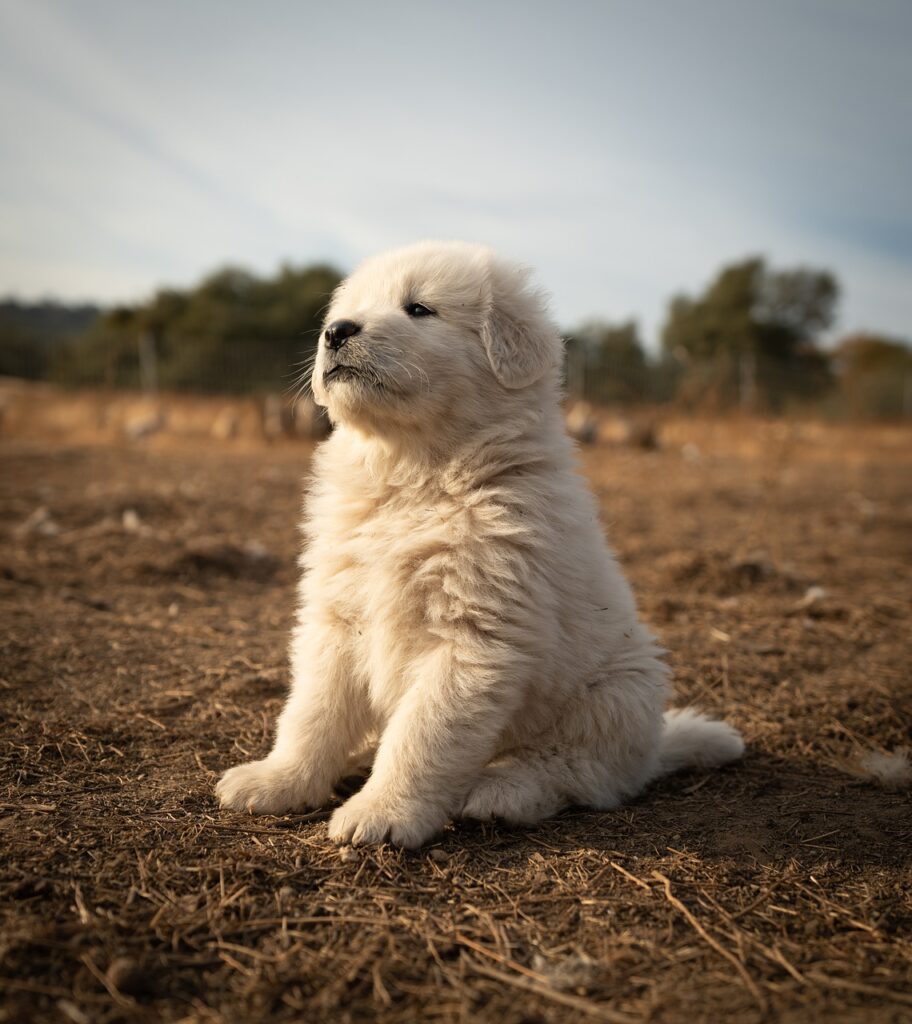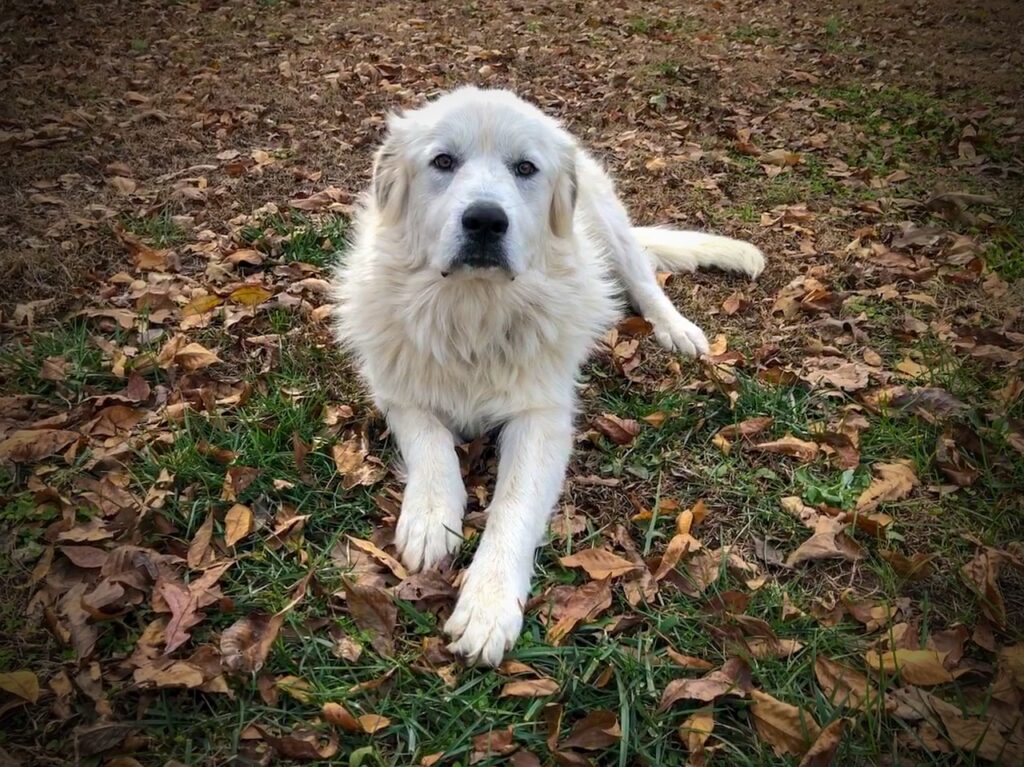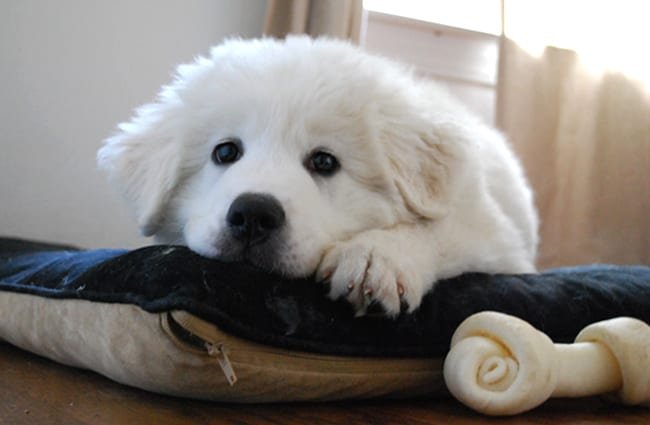
Great Pyrenees are such great dogs for families. My technician that did my Orlando Termite Treatment on my home and my dog house was excited because he has a Great Pyreness too. He agrees they are remarkable dogs for famlies. If you need to treat your house or dog house for termites in the Orlando area, make sure you give Orlando Termite Treatment a call.
Bringing a Great Pyrenees into your life is embarking on a journey filled with majestic moments and unwavering loyalty. This remarkable breed, known for its imposing size, gentle disposition, and strong protective instincts, requires thoughtful care and attention as it grows and matures. In this comprehensive guide, we will explore the art of raising a Great Pyrenees dog, from puppyhood to adulthood, covering essential topics such as training, grooming, exercise, and healthcare.
Understanding the Great Pyrenees Puppy:
Before diving into the intricacies of raising a Great Pyrenees, it’s crucial to understand the characteristics and needs of this breed, especially during their puppy stage.
- Size and Growth: Great Pyrenees puppies are adorable bundles of fluff, but they grow rapidly. Expect your puppy to reach its full adult size within the first year, so be prepared for a significant increase in size.
- Temperament: These puppies are known for their gentle and patient temperament. They are generally good with children and make excellent family pets. However, their protective instincts begin to develop early, so early socialization is key to ensure they are well-adjusted.
- Exercise: While they may not be as active as some other breeds, Great Pyrenees puppies still need regular exercise to develop healthy muscles and joints. Short walks and playtime in a secure area are suitable for young puppies.
Training and Socialization:
Training a Great Pyrenees puppy is a rewarding but essential part of raising a well-behaved adult dog. Here are some key training considerations:
- Positive Reinforcement: Great Pyrenees dogs respond well to positive reinforcement methods. Use treats, praise, and affection to reward good behavior.
- Socialization: Early and extensive socialization is crucial. Introduce your puppy to various people, animals, and environments to prevent them from becoming overly territorial or aggressive.
- Basic Commands: Teach basic commands like “sit,” “stay,” and “come.” Consistency and patience are key when training this breed.
- Leash Training: Due to their protective instincts, leash training is important. Teach your puppy to walk on a leash without pulling to ensure they are manageable on walks.
Grooming and Coat Care:
The Great Pyrenees has a luxurious double coat that requires regular grooming to keep it healthy and attractive. Here are some grooming tips:
- Brushing: Brush your Great Pyrenees at least a few times a week to prevent matting and reduce shedding. During shedding seasons, more frequent brushing may be necessary.
- Bathing: Bathe your dog as needed, but be cautious not to overdo it, as excessive bathing can strip their coat of natural oils.
- Nail Trimming: Keep their nails trimmed to prevent discomfort or injury. Regular nail maintenance is essential for their overall well-being.
- Ear Cleaning: Check and clean their ears regularly to prevent infections. Be gentle and use a dog-specific ear cleaner.
Exercise Requirements:
While Great Pyrenees dogs are not overly active, they still require regular exercise to maintain their physical and mental health. Here’s how to meet their exercise needs:
- Daily Walks: Short daily walks are essential for keeping your Great Pyrenees in good shape. They enjoy leisurely strolls and will appreciate the opportunity to explore their surroundings.
- Secure Play Area: Provide a secure area for play and exercise, as these dogs love to romp and play.
- Mental Stimulation: Engage their minds with puzzle toys and interactive games to prevent boredom.
- Monitoring Exercise: Be mindful of their exercise, especially during growth stages, to protect their developing joints and bones.
Healthcare and Nutrition:
To ensure your Great Pyrenees leads a healthy and happy life, proper healthcare and nutrition are paramount:
- Regular Vet Check-Ups: Schedule regular check-ups with your veterinarian to monitor your dog’s health and address any potential issues early.
- Vaccinations: Keep up with vaccinations to protect your dog from common diseases.
- Diet: Provide a balanced diet appropriate for your dog’s age and activity level. Consult your vet for guidance on portion sizes and dietary needs.
- Hydration: Always ensure your dog has access to clean, fresh water.
Raising a Great Pyrenees dog is a journey that rewards patience, dedication, and a deep love for these majestic companions. From their puppyhood to adulthood, these dogs will fill your life with loyalty and gentle affection. By understanding their unique needs, investing in proper training, grooming, exercise, and healthcare, you can ensure that your Great Pyrenees thrives as a cherished member of your family. In return, you’ll have a faithful guardian and friend who stands by your side through all of life’s adventures.


